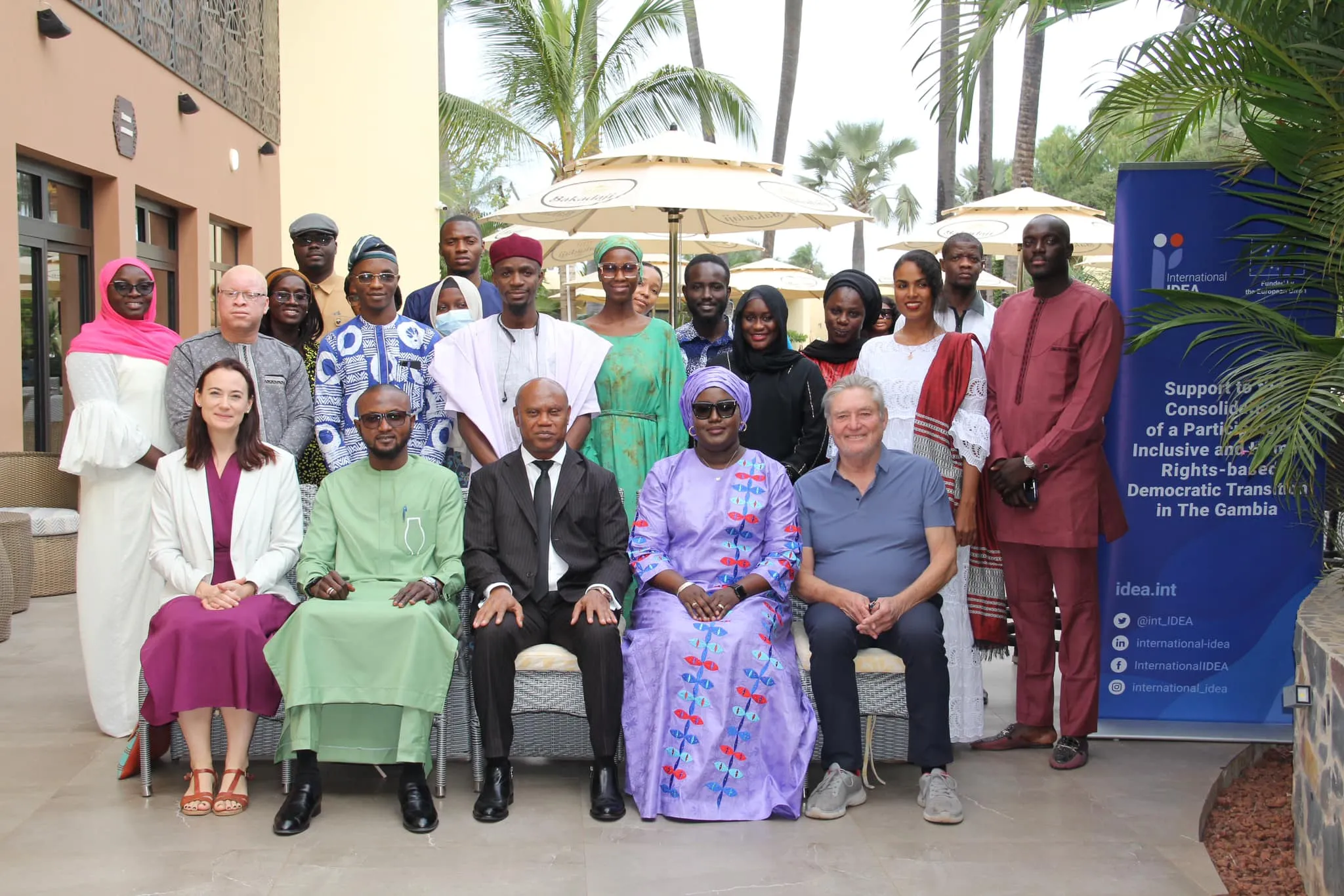The European Union and International IDEA trained drafters on Legislative Drafting Techniques

The International Institute for Democracy and Electoral Assistance (International IDEA), in partnership with the National Assembly (NA) and the Ministry of Justice (MOJ), and with the support of the European Union, organized a two-day capacity-building training on Legislative Drafting from December 6–7, 2024. The training brought together drafters from the NA and MOJ, focusing on enhancing their technical expertise in drafting clear, precise, and enforceable legislation.
Ms. Jainaba Faye, Head of the International IDEA Country Office, emphasized the significance of such initiatives:
“This training is fundamental to the very functioning of our legal systems. Legislative drafting is an art that involves translating policy decisions into clear, enforceable laws. Laws are the backbone of any functioning society, and their value lies not only in their content but also in how effectively that content is communicated. Poorly constructed legal texts can lead to confusion, misinterpretation, and challenges, undermining the objectives they aim to achieve.”
Ms. Faye further highlighted the importance of investing in the professional development of legislative drafters, noting that such initiatives strengthen governance, promote accountability, and enhance the overall quality of the legal systems.
Ms. Enya Braun, representing the European Union Ambassador, reiterated the critical role legislative drafting plays in shaping governance and safeguarding citizens’ rights.
“Legislative drafting is not merely a technical task; it is a deeply impactful process that shapes governance, accountability, and daily life. Key bills such as the Public Order Act, Criminal Procedures Bill, Data Protection Bill, and National Security Council Bill are central to protecting rights and freedoms.”
Ms. Braun added that the European Union remains proud to support initiatives like this through the CODE project, emphasizing that such efforts build trust, foster accountability, and align governance with democratic principles.
“The public relies on drafters to create laws that are clear, accessible, and written in plain language, ensuring they can be easily understood by all,” she added.
Mr. Hussien Thomasi, the Solicitor General and Legal Secretary at the Ministry of Justice, praised the training as an opportunity to foster collaboration and share experiences between the legislative and executive branches:
“This session offers invaluable insights that will further strengthen our ability to draft laws that are fit for purpose and aligned with international best practices.”
He expressed his gratitude to International IDEA and the European Union for their continued support in enhancing the capacity of legislative drafters.
Mr. Kalipha Mbye, the Clerk of the National Assembly, underscored the timeliness of the training, stating:
“Effective governance depends on well-drafted legislation, while society requires user-friendly and progressively drafted laws to ensure harmonious coexistence with the rule of law.”
The key areas covered during the training included legislative syntax, principles of punctuation, best practices, and comparative approaches to legal drafting. The main objective was to equip participants with the skills necessary to contribute to the development of effective, high-quality legislation.
This training marked the second session organized for drafters from the NA and MOJ, reflecting the CODE project’s commitment to strengthening legislative processes in line with democratic principles.




